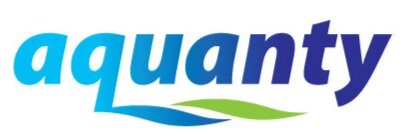There will be many opportunities to connect with Aquanty at this conference. Join Brayden McNeill at our booth for a demonstration of Aquanty’s real-time hydrologic forecasting system (HGSRT) or to learn more about the Canada1Water project.
Or you can connect with Dr. Steve Berg and Dr. Hyoun-Tae Hwang at the session that we are hosting on Groundwater Surface Water Interactions.
Finally, you’ll have a chance to learn more about HydroGeoSphere at our short-course preceding the conference. Details below!
Session Information - Groundwater and surface water interactions
Session #: T18-Session 6
Conveners: Dr. Steve Berg and Dr. Hyoun-Tae Hwang
Keynote Speaker: Dr. Rene Therrien
Description:
Groundwater-surface water (GW-SW) interactions are generally considered as water, solute, or heat exchanges between groundwater and surface water systems. Groundwater discharges into rivers and lakes and sustains ecosystems by regulating the water cycle. On the other hand, surface water also affects groundwater system through a recharge process. Therefore, from the hydrological perspective, groundwater and surface water are a single resource and managing this resource requires an understanding of how these systems interact. As a single resource, understanding interactions between groundwater and surface water has been significantly important for water quantity and quality management, including flood and drought controls, contamination risk mitigation, and biological and ecological system sustainability and assessment. Considering the importance of GW-SW interactions, there are growing studies on the spatiotemporal dynamics of GW-SW interactions because of requiring multidisciplinary understanding across social, political, and scientific communities. This session aims to bring together researchers, practitioners and stakeholders in the fields of water resources and to introduce and discuss current advancements in understanding GW-SW interaction dynamics including water flow, solute and heat transport, and eco-hydrological processes from theoretical aspects, field and laboratory experiments/observations, and numerical and analytical modelling.
HydroGeoSphere Short Course: Introduction to Fully-Integrated Hydrologic Modelling
Presenters: Dr. Hyoun-Tae Hwang
Course Assistance: Dr. Steve Berg and Brayden McNeill
Course Duration: 2 days
Description:
Tackling problems of water quantity and quality increasingly requires the simulation and quantification of complex flow and transport processes in coupled surface-subsurface systems. Over the last 15 years, HydroGeoSphere (HGS) has become available to address those types of problems. This 3-day HGS short course will be held at BEXCO, Busan, South Korea from the 23 to 24 of August 2024. The two-day short course will include three sessions: surface and groundwater modelling theories, basic tutorials for HGS operation, and advanced modelling techniques. These sessions will cover modelling techniques for solving commonly encountered advanced groundwater flow and contaminant transport problems in the real world. Participants will learn how to apply HGS to their own research or industrial projects through a combination of presentations and hand-on practices. The topics covered include: theoretical background of groundwater-surface water flow and contaminant transport (mathematical formulation and numerical approaches); hands-on simulation exercises (data preparation, mesh generation, HGS operation, calibration, visualization, and result interpretation); cost-effective computing skills (parallel computing utilities, characteristics of nonlinear problems, and effective mesh generation). Session 1. Surface and Groundwater Modelling: Theories and Real-World Applications. This session covers basic theories of surface and groundwater modelling implemented into HGS, including the development of conceptual models, a review of model parameterization/data requirements, and the application of boundary conditions. Modelling techniques related to groundwater systems will also be introduced in this session. Additionally, we will introduce the latest research and developments in fully integrated simulation of hydrosystems from the HGS team and user community, and potential applications for the HGS integrated modelling platform. Session 2. HGS Basics. This module covers basic skills for operating HGS from software installs to simulation output visualizations. All participants will practice how to construct conceptual models, setup boundary conditions and apply various groundwater physics such as well injection and extraction, reactive contaminant transport. Additionally, we will present efficient ways for processing datasets that are required for pre- and post-processes of HGS simulations. Session 3. Advanced HGS Modelling. This session covers important techniques for advanced simulations. Specifically, we will present how to generate quality meshes, model calibration processes and recent HGS developments for solving water resources problems. For advanced simulation examples and practices, all participants will solve several practical problem sets. Specifically, the topics of this workshop include: 1) overview of a basin-scale model and data structures, 2) detailed mesh generation, 3) 3D subsurface and 2D surface model constructions, 4) simulation parameter settings for cost-effective modelling, 5) detailed HGS-PEST operations based on the example model, 6) groundwater contribution analysis, and 7) model uncertainty analysis.

